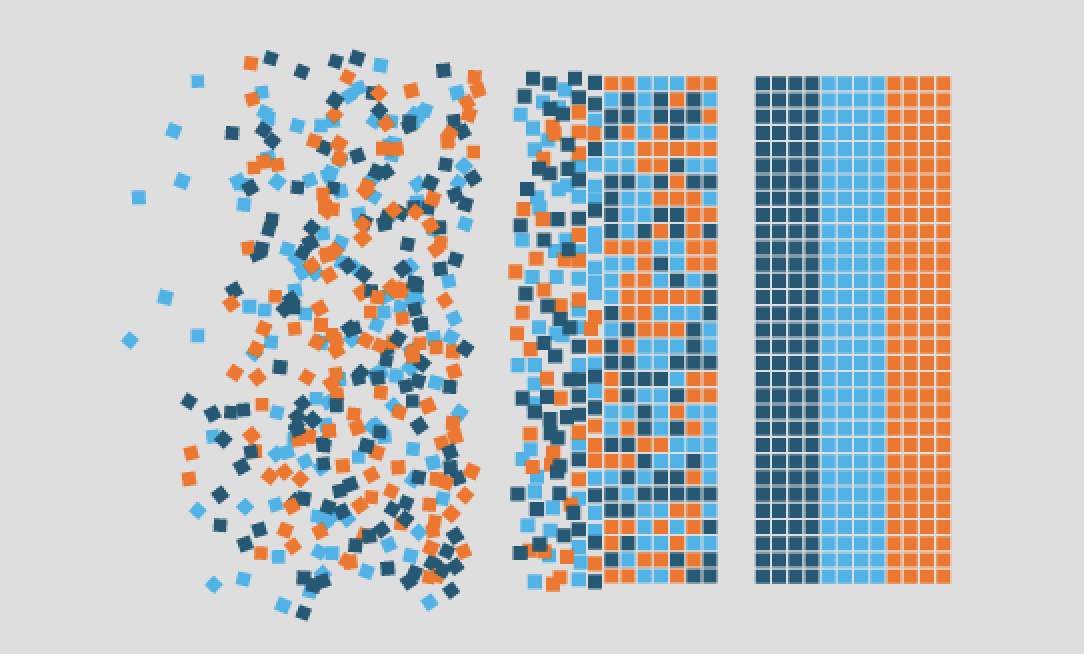Feel the Power: Big Data and Data Analytics

- Fikret Sebilcioğlu CFE, CPA, TRACE Anti-Bribery Specialist
- Managing Partner
- E-mail to Fikret
Cerebra understands that we should embrace new technologies to improve the way that we work and convert our business model with the aim of generating value added insights for our clients and their businesses.
“Big Data” is a term that means different things to different people and this deep and wide topic touches many other issues such as data analytics. The general view is that big data will have a widespread impact on everything because having the most accurate and complete data collected from multiple sources to the best advantage of the organization allows businesses for better decision making.
Let’s delve into big data and data analytics.
The business world has realised a fact in a variety of different ways that the processed and analysed big data will mean a lot for enhancing productivity, growing profits and managing risk effectively. This journey is continuing, and it seems it will never end.
What is Big Data?
Big data is a term that describes the large volume of data generated internally and externally for an organization.
The big data sources:
Media: Media (images, videos, audio etc.) and Social Media (LinkedIn, Facebook, Twitter, YouTube, Instagram, Vimeo).
Cloud Platforms: Public, private or third-party cloud platforms
Public Web: Data publicly available on the web (government sites, weather and traffic sources, regulatory sources, internet dictionary etc).
Internet of Things (IoT): Data generated from interconnection of IoT devices such as machine log data, sensor data.
Docs: Electronic mails and end user products such as excel, word, power point etc.)
Business Apps: Enterprise Resource Planning (ERP), Material Requirements Planning (MRP), content management systems, project management, marketing automation, productivity, Customer Relationship Management (CRM), human resources related systems, procurement, expense management etc.
Data Storage Systems: File repositories, relational database systems etc.
Big data is associated with the following key concepts:
Volume: Average quantity of data units per category.
Variety: The number of different data sources and types.
Velocity: The rate at which data is generated and changed.
Veracity: The biases, noise and abnormality in data.
Interoperability: The capacity of processing data by analytics systems
Value: The business value of data that is generated as a result of processing and usage.
Data could be in the following forms in terms of content and the way of capturing:
- Data generated through internal and external sources
- Structured and unstructured data
- Data generated digitally and manually

What is Data Analytics?
Data analytics is the process of analysing raw data to draw conclusions about the information they contain, increasingly with the aid of ever-growing algorithms, applications, systems and platforms. Data analytics techniques and technologies are not only widely used in businesses to enable organizations to make more-informed business decisions but also used by scientists and researchers to verify or disprove scientific models, theories and hypotheses.
In accordance with the Gartner's Model, there are four stages of data analytics depending on the mathematical complexity;
Descriptive Analytics: What happened?
Diagnostic Analytics: Why did it happen?
Predictive Analytics: What will happen?
Prescriptive Analytics: How can we make it happen?
This model provides a useful way to measure an organization’s progress along the analytics journey.
Data analytics can provide insights to business leaders from two interconnected perspectives depending on what they look for before and after making business decision; (a) strategy and business performance (b) risk and compliance.
|
Data is just information in a raw format. Due to “Big Data” reality, data should be collected, cleaned, modelled, processed and visualised with the aim of finding useful information, extracting insights and supporting decision making. |
Strategy and Business Performance
Business decision makers must not only deal with well-known challenges such as competition, increasing regulation and sustained volatility, but also the need to boost profitability with the best innovative growth strategies.
Data analytics initiatives can help businesses improve operational efficiency, optimize costs, increase revenues, offer better customer service. optimize marketing campaigns, respond more quickly to emerging market trends and gain a competitive advantage. All these activities are made with the ultimate goal of improving business performance and more importantly shaping the strategy in a world defined by disruptive digitalization evolving at an unprecedented rate.
Risk and Control
Business decision makers are confronted by various challenges due to economic and regulatory volatility. Data analytics including business intelligence initiatives offer them the power to meet changing and emerging risk and control challenges in such volatile environments.
Data analytics initiatives offer opportunities to streamline business processes and operations (such as sales, purchasing, logistic etc.), improve risk assessment and management, develop an effective internal control system that is aligned with risks, prevent and detect fraud and waste, identify policy/regulatory non-compliance.
A Difficult Journey that Requires Skills and Patience
Nobody is questioning the benefits of big data and data analytics; however, organizations have been facing many challenges in this journey such as disparate data sources, cost of capturing data, data integrity, data storage, effective using data analytics tools, queries to generate right analytics, visualization and data privacy.
In addition, being able to collect the right data is one thing but having an understanding that turn data into actionable insight requires a right balance of skills, talent in data analytics, forward-looking mindset and more importantly persisting behaviour.
It appears that technological advancements will be ongoing and will take place at a much faster rate than ever before. This will definitely lead to data sets rapidly growing in an unprecedented scale. Taking all these facts into account, if the Boards and the C-suites do not turn data into insights for their decision making process within a short period of time, this will not only be an old-fashioned management style but may lead to a situation where their companies will cease to exist to make rooms for those who use big data, data analytics and business intelligence smartly.
We, as Cerebra, understand that we should embrace new technologies to improve the way that we work and convert our business model with the aim of generating value added insights for our clients and their businesses. For this reason, we have embarked on a new journey to become a technology and data-driven firm.
Have you started this inevitable journey yet?


